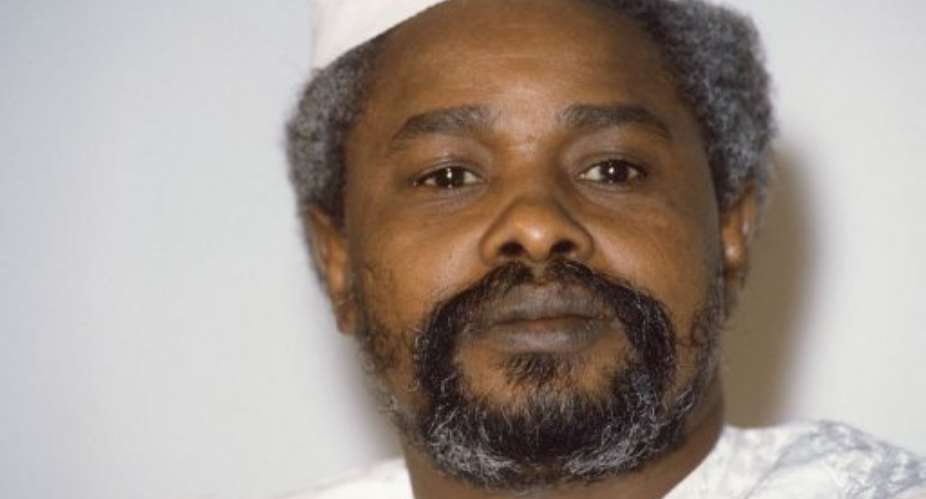GENEVA (AFP) - UN human rights chief Navi Pillay on Sunday urged Senegal to reconsider its decision to send Chad's former dictator Hissene Habre back to his home country to face justice for alleged atrocities.
Extraditing Habre to Chad, which has sentenced him to death in absentia for the torture and killing of political opponents, may violate international law, she said, as the ex-dictator's victims also voiced concerns.
"I urge the government of Senegal to review its decision," Pillay said in a statement, stressing the need for guarantees that Habre would not face torture or the death penalty and would get a fair trial.
"Extraditing Habre in the present circumstances, in which those guarantees are not yet in place, may amount to a violation of international law."
Habre ruled Chad from 1982 and fled to Senegal in 1990, when he was overthrown by incumbent President General Idriss Deby Itno.
A 1992 truth commission report in Chad said Habre had presided over 40,000 political murders and widespread torture.
In 2008, a court there sentenced him to death for crimes against humanity following a trial held in his absence.
The former dictator has spent two decades in exile in Senegal, which announced last week it would sent him home on a private plane on Monday.
"As a party to the Convention Against Torture, Senegal may not extradite a person to a state where there are substantial grounds for believing he would be in danger of being subjected to torture," Pillay said.
"At the very least Senegal must obtain fair trial guarantees from the government of Chad before any extradition takes place."
The authorities in Ndjamena were not available for comment, but Clement Abayefouta, president of the AVRP association of victims of political repression, welcomed the UN statement.
"Senegal had committed itself to holding Hissene Habre until his trial. This about-turn must be of concern to international organisations. It is in Senegal's interest to keep Hissene Habre until he can be legally judged," he said.
Added victims' lawyer Jacqueline Moudeina: "In Chad, there can be no guarantee of a fair trial."
Habre, through his lawyer, has denounced his pending repatriation as "kidnapping".
The former ruler was charged in Senegal in February 2000, but the indictment was dismissed by a Dakar appeals court on the basis that crimes against humanity, of which he was accused, were not part of Senegalese criminal law.
Senegal has since amended its penal code, but no trial has started in spite of an African Union mandate for the country to try Habre.
In September 2005, Belgium issued an international warrant for Habre's arrest after several alleged victims of his regime filed complaints in Belgian courts, but Senegal refused to extradite him.
Brussels then lodged a case in the International Court of Justice in The Hague in 2009, seeking to compel Senegal to prosecute the former president or extradite him to Belgium for trial. A ruling is still pending.
There is much uncertainty about what awaits Habre, who has been living in an upscale suburb of Senegal's seaside capital, on arrival in Chad.
"He should be taken into custody on arrival at the airport and taken to a judge who will charge him and place him in detention," a judicial source close to the case told AFP.
© 2011 AFP





 We’ll no longer tolerate your empty, unwarranted attacks – TUC blasts Prof Adei
We’ll no longer tolerate your empty, unwarranted attacks – TUC blasts Prof Adei
 Bawumia donates GHc200,000 to support Madina fire victims
Bawumia donates GHc200,000 to support Madina fire victims
 IMF to disburse US$360million third tranche to Ghana without creditors MoU
IMF to disburse US$360million third tranche to Ghana without creditors MoU
 Truck owner share insights into train collision incident
Truck owner share insights into train collision incident
 Paramount chief of Bassare Traditional Area passes on
Paramount chief of Bassare Traditional Area passes on
 Two teachers in court over alleged illegal possession of BECE papers
Two teachers in court over alleged illegal possession of BECE papers
 Sunyani: Victim allegedly shot by traditional warriors appeals for justice
Sunyani: Victim allegedly shot by traditional warriors appeals for justice
 Mahama vows to scrap teacher licensure exams, review Free SHS policy
Mahama vows to scrap teacher licensure exams, review Free SHS policy
 Government will replace burnt Madina shops with a new three-story, 120-store fac...
Government will replace burnt Madina shops with a new three-story, 120-store fac...
